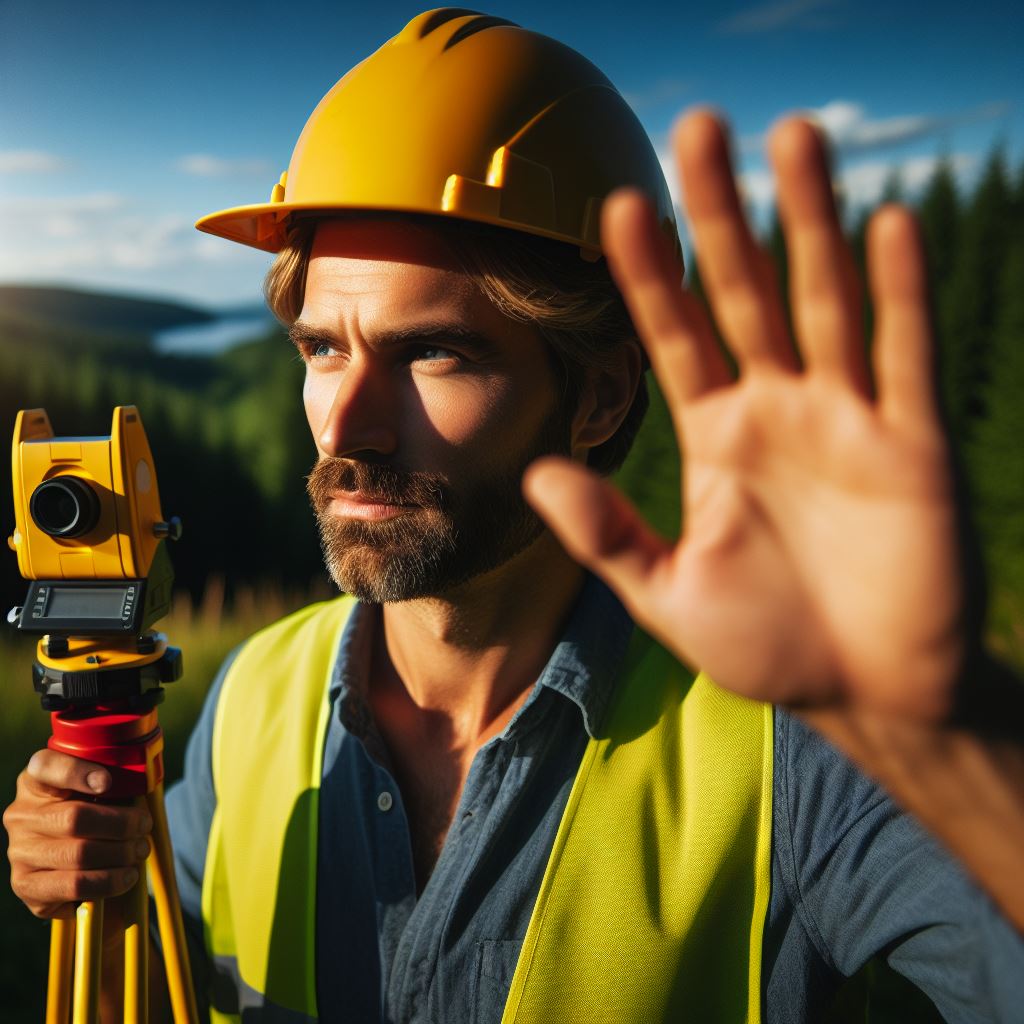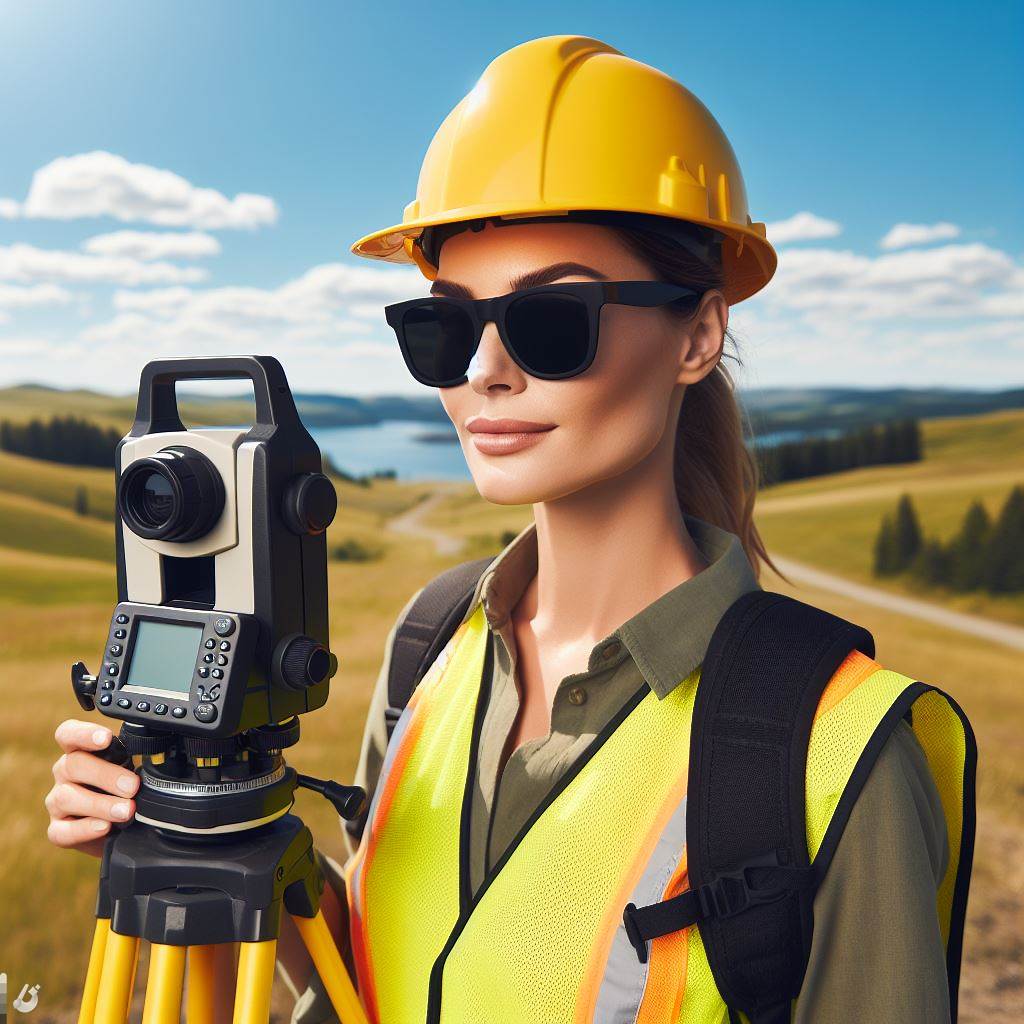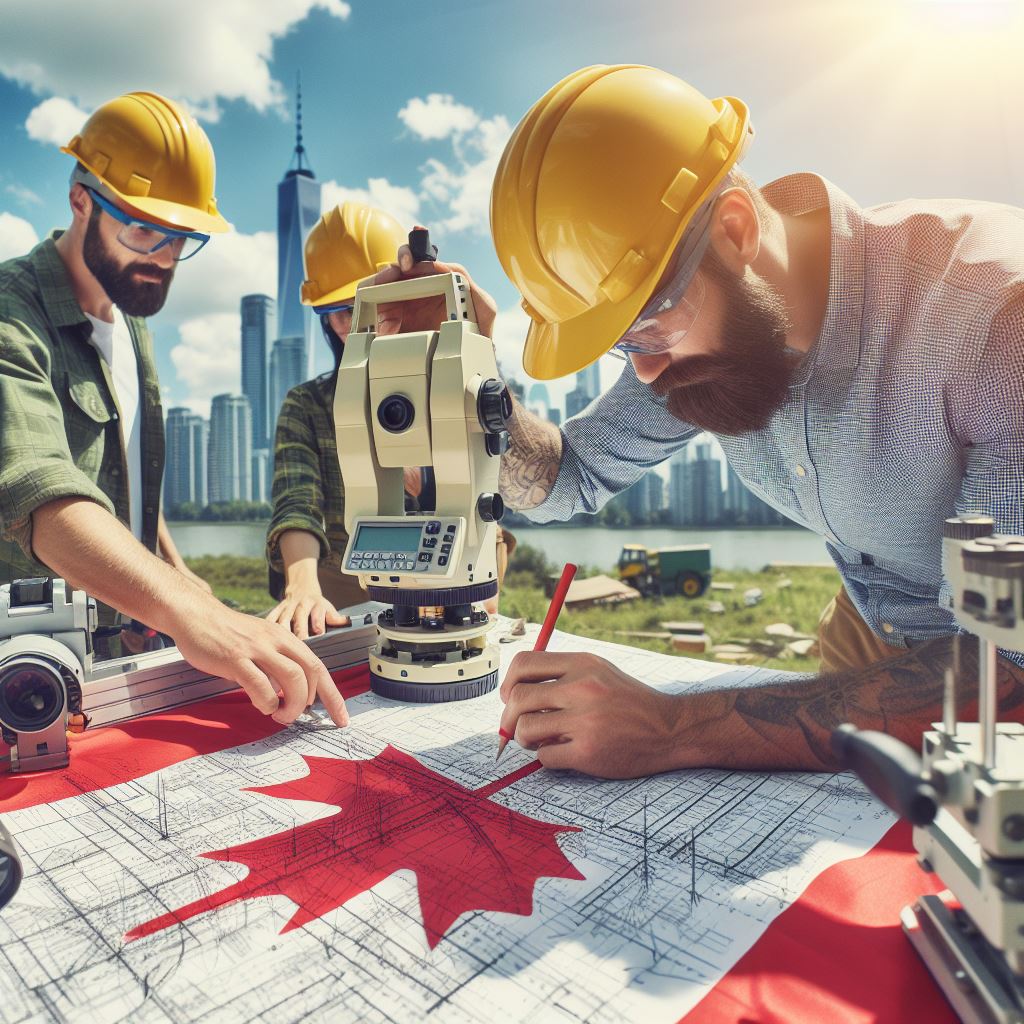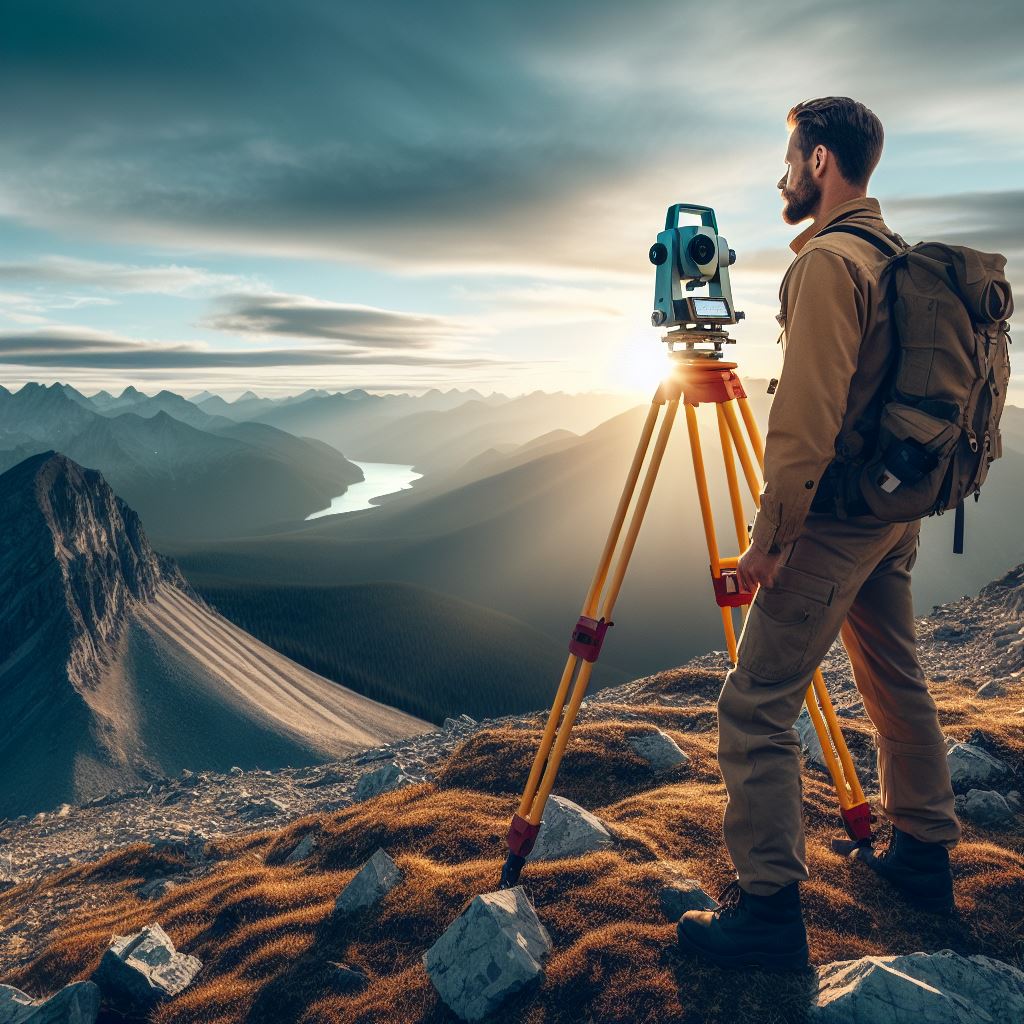Introduction
Marine surveying is the process of inspecting and assessing marine vessels, their equipment, and cargoes to ensure compliance with regulations.
In Canada, this field holds immense significance due to its vast coastline and bustling maritime industry.
This blog post provides an overview of marine surveying in Canada, emphasizing its roles and responsibilities.
Marine surveying involves inspecting vessels, machinery, and cargoes to identify any potential risks, damages, or shortcomings.
This helps ensure safety, compliance, and optimal performance in the maritime sector.
Given Canada’s extensive coastline and reliance on maritime transportation, the role of marine surveyors becomes crucial.
They contribute to maintaining the safety, reliability, and efficiency of vessels and their operations.
This blog post delves into the roles and responsibilities of marine surveyors in Canada, shedding light on their diverse tasks and the skills required for this profession.
It explores the importance of surveying in various maritime sectors, such as shipping, offshore operations, and marine insurance.
With an active voice and concise sentences, the blog section provides a comprehensive introduction to marine surveying in Canada.
Overview of Marine Surveying in Canada
Marine surveying is the practice of inspecting and evaluating marine vessels to assess their condition, performance, and compliance with regulations.
Definition of marine surveying
Marine surveying involves conducting inspections, examinations, and analyses of various aspects related to ships and boats.
It includes evaluating the vessel’s structure, machinery, safety equipment, and overall seaworthiness.
The purpose of marine surveying is to ensure the safety, quality, and compliance of marine vessels.
Types of Marine Surveying Practices
There are several types of marine surveying practices, each with its specific focus and purpose:
- Vessel condition surveys: These surveys assess the overall condition and integrity of a vessel, including its hull, machinery, electrical systems, and safety equipment.
- Cargo surveys: These surveys evaluate the condition and handling of cargoes, ensuring they are properly stowed, secured, and in good condition.
- P&I surveys: P&I (Protection and Indemnity) surveys are conducted for insurance purposes to assess the risks associated with a vessel and its operations.
- Damage surveys: These surveys are carried out after accidents or incidents to determine the extent of damage and the cause behind the incident.
- Pre-purchase surveys: Prior to purchasing a vessel, pre-purchase surveys are conducted to thoroughly inspect and evaluate the vessel’s condition, value, and suitability for the intended use.
Scope of marine surveying in Canada
In Canada, marine surveying plays a vital role in ensuring the safety and compliance of maritime operations:
- Regulatory compliance: Marine surveyors in Canada ensure that vessels operating in Canadian waters adhere to national and international regulations and standards.
- Safety of vessels and crew: Marine surveyors assess the seaworthiness and safety of vessels, ensuring they meet the necessary standards to protect crew members and passengers.
- Insurance requirements: Insurance companies often require marine surveys to assess risk and determine premiums for vessel owners.
- Marine accident investigations: In the event of accidents or incidents, marine surveyors provide expertise in investigating the cause and extent of damages.
- Marine cargo inspections: Surveyors inspect and evaluate the condition and safety of cargoes being transported through Canadian waters.
Overall, marine surveying is a critical profession in Canada’s maritime industry, promoting safety, compliance, and the protection of marine resources.
Read: Navigating Surveyor Career Paths in Canada
Roles and Responsibilities of a Marine Surveyor
Inspection and assessment of vessels
- A marine surveyor’s main responsibility is to conduct thorough inspections of maritime vessels.
- They assess the condition of the vessel’s structure, machinery, and equipment to ensure seaworthiness.
- Surveyors inspect various types of ships, including cargo vessels, passenger ships, and offshore platforms.
- They identify any defects, damages, or potential risks that may compromise the safety or performance of the vessel.
- Surveyors use advanced tools and techniques to examine the hull, electrical systems, navigation equipment, and more.
Identification and evaluation of potential risks
- Marine surveyors are responsible for identifying potential risks and hazards associated with vessels.
- They evaluate the safety procedures, stability, and firefighting systems onboard the ships.
- Surveyors analyze the risk of environmental pollution due to fuel leaks or improper waste disposal.
- They identify potential dangers that might affect crew members, passengers, or the marine environment.
- Surveyors suggest preventive measures and recommendations to mitigate potential risks.
Documentation and reporting
- One of the key roles of a marine surveyor is to prepare detailed reports based on their findings.
- They document their inspections, including photographs, measurements, and descriptions of any damages.
- Surveyors provide clear and concise reports that outline the condition of the vessel and any recommended repairs.
- These reports are essential for shipowners, insurers, and regulatory authorities to make informed decisions.
- Surveyors must maintain accurate records and ensure confidentiality in handling sensitive information.
Compliance with regulations and standards
- Marine surveyors play a vital role in ensuring vessels comply with national and international regulations.
- They are familiar with maritime laws, classification society rules, and industry standards.
- Surveyors review the vessel’s documentation, certificates, and logbooks to verify compliance.
- They assess the vessel’s safety equipment, including life-saving appliances, fire protection systems, and navigational aids.
- Surveyors participate in audits and inspections to ensure adherence to regulations and standards.
In short, marine surveyors in Canada have diverse roles and responsibilities.
They inspect vessels, identify risks, document findings, and ensure compliance with regulations.
Their expertise plays a crucial role in maintaining maritime safety and security.
Read: Canadian Surveyors’ Biggest Challenges in 2024
Qualifications and Skills Needed for Marine Surveying
Marine surveying is a specialized field that requires individuals to possess certain qualifications and skills in order to excel in their roles and responsibilities.
These include:
Education and certification requirements
- A bachelor’s degree in marine science, naval architecture, or a related field is typically required.
- Obtaining certifications through organizations such as the International Institute of Marine Surveying adds credibility.
- Continuing education and staying up-to-date with industry developments is essential.
Technical knowledge and expertise
- A solid understanding of marine systems, vessel operations, and marine regulations is necessary.
- Proficiency in conducting inspections, analyzing data, and interpreting technical drawings is vital.
- Familiarity with navigation equipment, marine electronics, and safety procedures is crucial.
Communication and interpersonal skills
- Effective communication skills are essential for conveying survey findings to clients and stakeholders.
- The ability to write detailed reports that are easily understood by non-technical individuals is important.
- Interpersonal skills enable marine surveyors to interact with various stakeholders, including vessel owners and operators.
Problem-solving and decision-making abilities
- Marine surveyors must possess strong problem-solving skills to identify issues and propose effective solutions.
- Being able to make sound decisions under pressure is crucial, especially during emergency situations.
- Analyzing complex information and using critical thinking are key for successful problem-solving and decision-making.
In addition to these qualifications and skills, marine surveyors must also demonstrate attention to detail, organizational skills, and the ability to work independently.
Unlock Your Career Potential
Visualize a clear path to success with our tailored Career Consulting service. Personalized insights in just 1-3 days.
Get StartedThey should be physically fit and comfortable working in various environments, including confined spaces and offshore locations.
Furthermore, possessing a strong work ethic, professional integrity, and a commitment to conducting surveys with impartiality and objectivity is essential for success in this field.
While these qualifications and skills are important, it is worth noting that marine surveying is a dynamic profession that requires continuous learning and adaptation to new technologies and regulations.
As such, individuals in this field must possess a growth mindset and a commitment to lifelong learning.
In fact, marine surveying demands a blend of technical expertise, communication skills, problem-solving abilities, and relevant certifications.
It is a profession that offers exciting challenges and opportunities for those who are passionate about the marine industry and possess the necessary qualifications and skills.
Read: Essential Skills Every Electrical Engineer Needs

Explore Further: Surveyor Licensing in Canada: Province by Province
Work Environment and Industry Demand in Canada
Marine surveying is a fascinating field that offers a wide range of career opportunities in Canada.
In this blog section, we will explore the work environment and industry demand for marine surveyors in the country.
Locations and Settings Where Marine Surveyors Work
- Marine surveyors can be found working in various locations across Canada.
- They are often based in coastal cities and towns due to the proximity to water bodies.
- Marine surveyors can also work in inland areas where there are rivers, lakes, or other bodies of water.
- The work settings for marine surveyors can vary, ranging from offices to vessels.
- Surveyors may spend time aboard ships, conducting inspections and assessments.
- They may also work onshore, examining marine equipment, structures, and systems.
Job Prospects and Career Opportunities
- The demand for marine surveyors in Canada is expected to remain steady in the coming years.
- Job prospects are generally favorable due to retirement and industry growth.
- Canadian shipyards, marine construction companies, and insurance firms are among the key employers of marine surveyors.
- Additionally, government agencies and classification societies may hire marine surveyors for regulatory purposes.
- There are also opportunities for marine surveyors to work independently as consultants.
- As consultants, they can assist clients with vessel inspections, accident investigations, and risk assessments.
Growth Potential and Industry Demand
- The marine surveying industry in Canada is expected to experience moderate growth in the future.
- New vessel constructions, refurbishments, and repairs will contribute to employment opportunities.
- Advancements in technology and regulations will also drive the demand for marine surveyors.
- As the industry evolves, specialized knowledge in areas such as environmental compliance and energy efficiency will be in high demand.
- With the increased focus on sustainability, marine surveyors with expertise in green technologies will have additional career prospects.
- To meet the growing industry demand, aspiring marine surveyors should consider pursuing relevant education and certifications.
In essence, marine surveying in Canada offers a stable work environment with diverse career opportunities.
Whether working onshore or aboard vessels, marine surveyors play a crucial role in ensuring the safety and compliance of marine structures and equipment.
Read: The History of Land Surveying in Canada Explored
See Related Content: The Future of Architecture in Canada
Challenges and Rewards of Marine Surveying in Canada
Marine surveying in Canada is a profession that comes with its fair share of challenges and rewards.
From physical and mental challenges to the advantages and rewards of the profession, it is an occupation that offers a unique set of experiences.
Physical and Mental Challenges
- Undertaking marine surveys often requires individuals to work in difficult physical conditions.
- Surveyors may need to endure extreme temperatures, strong currents, and unpredictable weather.
- The demanding nature of the work can take a toll on physical well-being and mental resilience.
- Conducting surveys on large vessels or offshore installations can present safety hazards that require constant vigilance.
- Surveyors must possess a high level of concentration and attention to detail to accurately assess marine structures and equipment.
Advantages and Rewards of the Profession
- Despite the challenges, marine surveying offers numerous advantages and rewards.
- Surveyors have the opportunity to travel and explore different coastal regions of Canada.
- They get to work closely with various stakeholders in the maritime industry, such as shipowners and insurance companies.
- Marine surveyors play a critical role in ensuring the safety and integrity of vessels and marine installations.
- Their expertise helps prevent accidents and ensures compliance with regulations and industry standards.
- The profession offers a constant learning experience, as surveyors need to keep up-to-date with advancements in technology and industry practices.
Personal Experiences and Anecdotes
Many marine surveyors have personal experiences and anecdotes to share, which further highlight the challenges and rewards of their profession.
- Some surveyors recall moments of intense pressure when their expertise was instrumental in making crucial decisions.
- Others recount stories of overcoming physical adversities while conducting surveys in remote locations.
- Many surveyors find great satisfaction in their ability to contribute to the maritime industry’s safety and efficiency.
- They take pride in being part of a profession that ensures the seaworthiness of vessels and the protection of human life at sea.
- These personal experiences not only strengthen the bond among surveyors but also inspire future professionals in this field.
In a nutshell, marine surveying in Canada presents both challenges and rewards.
While the physical and mental demands can be significant, the profession offers unique advantages and personal fulfillment.
By combining expertise with personal experiences, marine surveyors contribute immensely to the safety and efficiency of the maritime industry.
Conclusion
Marine surveying plays a crucial role in ensuring the safety and integrity of maritime operations in Canada.
The responsibilities of marine surveyors include inspecting vessels, assessing their condition, and verifying compliance with regulations.
They also play a vital role in accident investigations and insurance claims.
Marine surveyors help maintain the high standards of safety and environmental protection in Canadian waters.
Their work is essential for preventing accidents, ensuring compliance, and minimizing risks in the marine industry.
Considering the importance of marine surveying, it is an exciting and rewarding career path to explore.
It offers opportunities to work with different vessel types, travel to various locations, and contribute to maritime safety.
With the increasing demand for skilled marine surveyors, there are ample opportunities for professional growth and development in this field.
If you have a passion for the maritime industry, attention to detail, and strong problem-solving skills, a career in marine surveying may be the right fit for you.
So, take the leap and be part of this critical profession that helps safeguard Canada’s marine operations.




